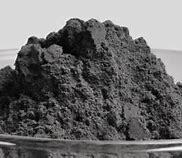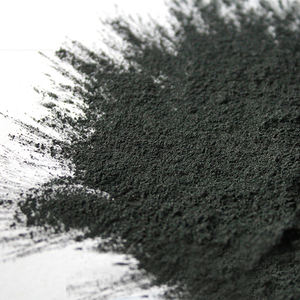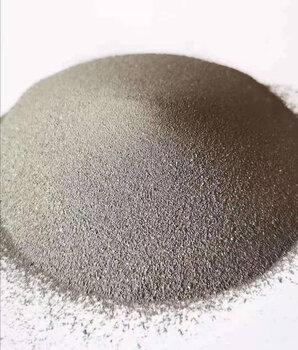Overview of powder carbide boron B4C F100 F120 F150 F180 F220 F320 F400 F500 F600 F800 boron carbide
Boron Carbide (B4C) is a ceramic compound renowned for its exceptional hardness and wear resistance, ranking just below diamond and cubic boron nitride in terms of hardness. Composed of boron and carbon atoms arranged in a covalently bonded crystal structure, it exhibits unique physical and chemical properties that make it highly valuable in various industrial and military applications. Boron carbide’s high melting point, low density, neutron-absorbing capability, and extreme toughness further distinguish it among advanced materials.
Features of powder carbide boron B4C F100 F120 F150 F180 F220 F320 F400 F500 F600 F800 boron carbide
-
Extreme Hardness: With a Mohs hardness of around 9.3 to 9.5, boron carbide is one of the hardest materials known, surpassed only by diamond and cubic boron nitride.
-
Lightweight: Despite its hardness, boron carbide has a relatively low density of about 2.52 g/cm³, which makes it an attractive material for lightweight armor systems.
-
Thermal Stability: It possesses excellent thermal stability, maintaining its properties up to temperatures around 2,000°C, making it suitable for high-temperature applications.
-
Neutron Absorption: Boron carbide is a potent neutron absorber due to its boron content, making it ideal for nuclear shielding and control rods.
-
Chemical Resistance: Resistant to most acids and alkalis, except for hydrofluoric acid and hot concentrated alkaline solutions, ensuring durability in corrosive environments.
-
Abrasion Resistance: Its exceptional wear resistance makes it suitable for applications where friction and abrasion are prevalent, such as sandblasting nozzles.

(powder carbide boron B4C F100 F120 F150 F180 F220 F320 F400 F500 F600 F800 boron carbide )
Parameters of powder carbide boron B4C F100 F120 F150 F180 F220 F320 F400 F500 F600 F800 boron carbide
Boron carbide boron carbide is an excellent and durable material for construction and manufacturing applications in various industries. It has been used in the automotive industry as a key material for creating advanced engine components and battery packs.
The parameters of boron carbide boron carbide vary depending on its application. Generally, it is defined by the formula 2H2O + 3B4(C)3nF100 + 2H2O + 4B4(C)3nF120 + 2H2O + 4B4(C)3nF150 + 2H2O + 4B4(C)3nF180 + 2H2O + 4B4(C)3nF220 + 4B4(C)3nF320 + 4B4(C)3nF400 + 4B4(C)3nF500 + 4B4(C)3nF600 + 4B4(C)3nF700. These parameters define the crystal structure, bonding, and modulus of the material.
Boron carbide boron carbide has several desirable properties that make it ideal for use in construction and manufacturing applications. For example, it is highly and high strength, making it suitable for use in different types of materials such as metal, plastic, and glass. It also has low coefficient of friction, which makes it well-suited for use in moving parts such as trucks and trains.
Another important aspect of boron carbide boron carbide is its corrosion resistance. The high melting point of the material allows it to withstand high temperatures, making it suitable for use in applications where harsh environmental conditions are required.
In conclusion, boron carbide boron carbide is a versatile and durable material that can be used in various industries. Its high, good strength, and corrosion resistance make it a popular choice for many applications. However, it is worth noting that the specific parameters of the material may vary depending on its intended use.

(powder carbide boron B4C F100 F120 F150 F180 F220 F320 F400 F500 F600 F800 boron carbide )
Applications of powder carbide boron B4C F100 F120 F150 F180 F220 F320 F400 F500 F600 F800 boron carbide
-
Armor Systems: Widely used in body armor, vehicle armor, and bulletproof vests due to its lightweight and superior protection capabilities.
-
Nuclear Applications: As control rods and shielding material in nuclear reactors because of its neutron absorbing properties.
-
Abrasive and Cutting Tools: In grinding wheels, polishing powders, and cutting tools due to its hardness and wear resistance.
-
Industrial Nozzles: For sandblasting and water jet cutting applications where resistance to wear and erosion is critical.
-
Military and Defense: As a component in armor-piercing projectiles and defensive systems.
Company Profile
MyCarbides is a trusted global chemical material supplier & manufacturer with over 12-year-experience in providing super high-quality carbides and relative products.
The company has a professional technical department and Quality Supervision Department, a well-equipped laboratory, and equipped with advanced testing equipment and after-sales customer service center.
If you are looking for high-quality carbide materials and relative products, please feel free to contact us or click on the needed products to send an inquiry.
Payment Methods
L/C, T/T, Western Union, Paypal, Credit Card etc.
Shipment
It could be shipped by sea, by air, or by reveal ASAP as soon as repayment receipt.
FAQs of powder carbide boron B4C F100 F120 F150 F180 F220 F320 F400 F500 F600 F800 boron carbide
Q: Is powder carbide boron B4C F100 F120 F150 F180 F220 F320 F400 F500 F600 F800 boron carbide toxic?
A: Pure boron carbide is generally considered safe to handle. However, during machining or grinding, dust inhalation can be a concern, requiring proper ventilation and protective equipment.
Q: Can powder carbide boron B4C F100 F120 F150 F180 F220 F320 F400 F500 F600 F800 boron carbide be machined?
A: Due to its extreme hardness, machining boron carbide is difficult and requires specialized techniques and diamond tooling. Grinding, EDM (Electrical Discharge Machining), or laser cutting are common methods.
Q: How does powder carbide boron B4C F100 F120 F150 F180 F220 F320 F400 F500 F600 F800 boron carbide compare to tungsten carbide in terms of hardness?
A: powder carbide boron B4C F100 F120 F150 F180 F220 F320 F400 F500 F600 F800 boron carbide is harder than tungsten carbide, with a Mohs hardness of around 9.3 to 9.5 compared to tungsten carbide’s 8.5 to 9.
Q: What is the primary use of powder carbide boron B4C F100 F120 F150 F180 F220 F320 F400 F500 F600 F800 boron carbide in the military sector?
A: powder carbide boron B4C F100 F120 F150 F180 F220 F320 F400 F500 F600 F800 boron carbide is primarily used in the military for body armor, armored vehicles, and as a component in armor-piercing ammunition due to its combination of hardness, light weight, and ballistic performance.
Q: Can powder carbide boron B4C F100 F120 F150 F180 F220 F320 F400 F500 F600 F800 boron carbide be used in high-temperature applications?
A: Yes, powder carbide boron B4C F100 F120 F150 F180 F220 F320 F400 F500 F600 F800 boron carbide maintains its structural integrity and properties up to very high temperatures, making it suitable for use in extreme heat environments such as furnace linings and high-temperature ceramics.

(powder carbide boron B4C F100 F120 F150 F180 F220 F320 F400 F500 F600 F800 boron carbide )





